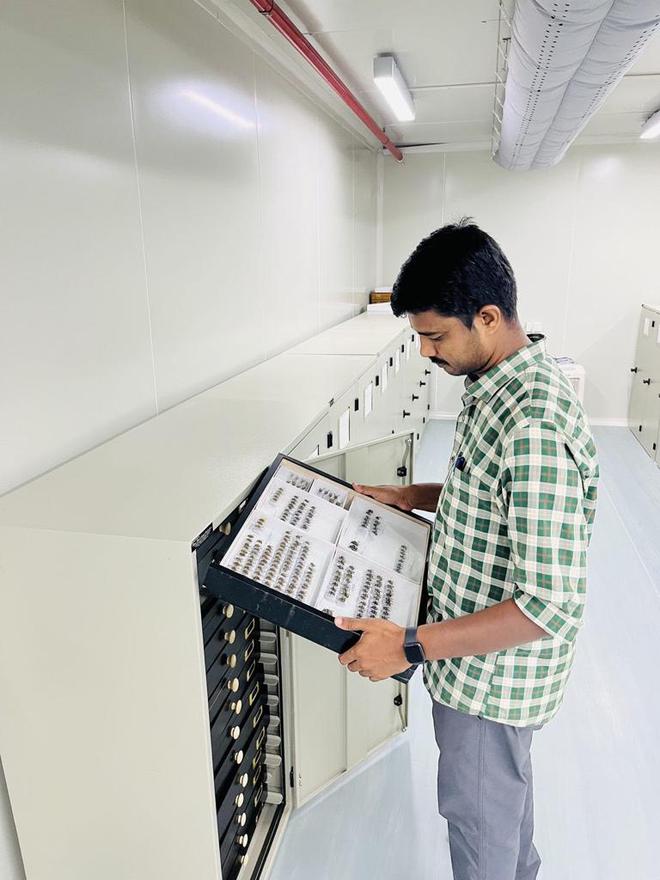A museum at National Centre for Biological Sciences (NCBS) in Bengaluru has started to put together a collection of bees from across India, particularly biodiversity hotspots such as Western Ghats and North-east India.
According to NCBS, whose scientists are part of a global collaboration to chart a road-map to take Asian bee research forward, “The lack of knowledge about where and how bee species live, and even more foundationally, an inability to identify different species is the biggest impediment to the conservation of Asian bees. This is the case in India too, where very little is known about the species’ diversity, population trends and the behavioural traits of native bee species.”

In order to fill up this lacuna, the museum has started to put together a collection of bees.
H.M. Yeshwanth, in charge of museum and collections, said, “We have specimens from all the different honey bee species, including the giant honey bees Apis dorsata, Apis laboriosa, Apis binghami and Apis breviligula. Of the four, A. laboriosa is particularly a spectacular species, in large part because it usually nests on inaccessible cliff crevices in the Himalayas.”
In addition to honey bees, they also have a unique collection of 1,200 bumble bee specimens belonging to 24 different species from North-East India, collected by NCBS scientist Axel Brockmann and his collaborators from Germany, and the Rajiv Gandhi University in Arunachal Pradesh.
Climate controlled facility
The facility is climate controlled and is one of its kind in India. It is a national repository of dry and wet specimen collections. It also provides taxonomic expertise to help identify and classify species.
In addition to the museum, 74 authors, including three NCBS scientists living and working in 13 Asian countries and beyond, have come together to chart a roadmap for Asian bee research.
Their research paper — titled Opportunities and challenges in Asian bee research and conservation — recommends more resources be put into building basic knowledge of bee biodiversity in India and Asia.
Ecological studies advocated
Alongside building upon these efforts, they also advocate carrying out ecological studies at both national and regional levels, to better understand how pollinator communities and their ecosystem services can be maintained.
According to NCBS, Asia hosts 15% of the world’s bee species, but only 1% of the global public data on bee distribution represents the region. Bees pollinate nearly 35% of our food crops, thus providing essential ecosystem services that are crucial for our food security. With over half the world’s human population residing in Asia, achieving food security in the region is a major challenge, especially as contemporary habitat loss and global climate change continue at an unprecedented rate.







